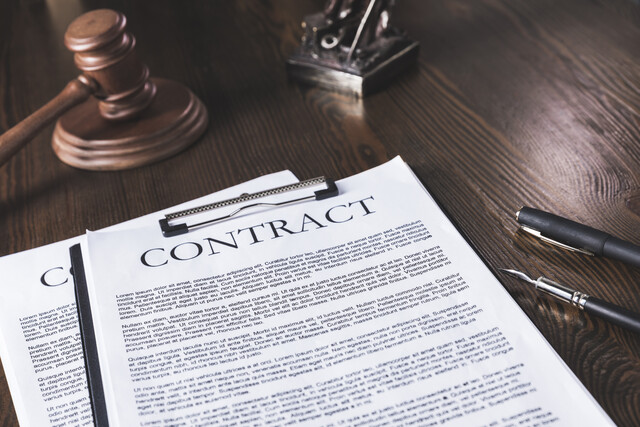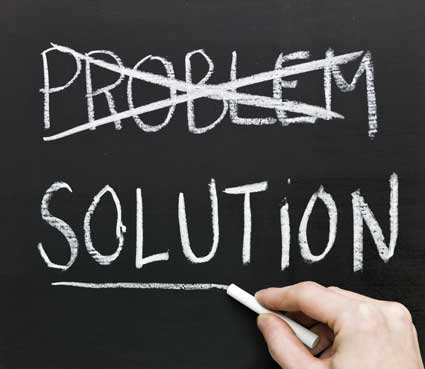A. Private Mortgage Insurance (PMI)
One of the uniquely associated elements with mortgages is that of private mortgage insurance (PMI).
Once again, due to the sizable amount of money involved in a mortgage, especially in cases where the borrower's down payment equates to less than 20% of the value of the property, private mortgage insurance proves to be an essential component of the mortgage agreement.
On account of the high risk nature of mortgage lending, as a banker-broker it is very important to take prudent steps to ensure financial coverage regardless of whether a borrower makes good on their loan or not.
Hence, in cases where the borrower has failed to come up with a significant down payment, as the banker-broker you can require that they purchase PMI as a protective measure in the event they default on the mortgage.
If the borrower defaults and the lender becomes the title owner of the property, the mortgage insurer then will either reduce or eliminate the loss to the lender. Basically, under the scope of PMI, the mortgage insurer teams with you the banker-broker to share in the risk of lending money to the borrower.
While it may not be a mortgage holder's intention, unfortunately, unexpected financial difficulties may occur whereby the borrower winds up in an unfortunate, though unavoidable default situation.
Thus, rather than being a safeguard for the borrower, PMI is actually a defense mechanism for you, the lender.
As was previously stated, if the borrower is perceived of as being at a higher level of risk default, then, as a condition of their mortgage loan, they will be required to purchase PMI.
Though, the cost of such protection varies, the general sense is that it costs in the neighborhood of one half of one percent of the loan amount.
How that translates is that on a property valued at $250,000 wherein an individual puts down 10 percent ($25,000), the annual cost for PMI on a $225,000 loan will run approximately $1125.00 per year or $93.75 per month.
While this may seem like an extraneous fee to some, clients lacking the ability to put down larger down payments frequently view the fees associated with PMI as an opportunity to get into a mortgage and, as is quite frequently the case, lower the regular monthly mortgage payments.
B. Mortgage Life Insurance (also known as Mortgage Protection Insurance)
A completely separate product from Private Mortgage Insurance, Mortgage Life Insurance is a method by which homeowners can pay off the cost of their home mortgage in the event of their death, disability, or incapacitating disease.
And as a banker-broker, though it may be a lucrative way of adding on fees to the traditional mortgage. It is encouraged that you share the details of how Mortgage Life Insurance works with your client(s).
For those interested in taking out such insurance, the value of the coverage must equal the remaining balance due on the mortgage and the policy's termination date must be the same as the date scheduled for the final payment on the mortgage.
In the event of death or severe physical illness, Mortgage Life Insurance that has been maintained over time, will pay off the remaining balance of the client's mortgage.
An odd twist of Mortgage Life Insurance is that if, over time, the mortgage holder has faithfully kept up their payments, the principal amount on the mortgage will have decreased over time. For this reason, the insurance company calculates the annual rate at which the insurance should decrease as a method for reflecting both the amount that has been paid and that which remains needing to be paid on the outstanding mortgage.
As a result, the payment made to the beneficiary of the policy will be marginalized according to how much has been paid and the amount that remains.
Within the U.S., although the majority of states do not require property owners to have Home Insurance, a good many lenders require it as part of the conditions of the mortgage loans they back.
Hence, in the majority of the cases, although it is not legally mandated, without homeowner's insurance, banker-brokers will not provide financing on the deal.
The purpose of imposing such a requirement is that it acts to protect the lender and homeowner should any major disasters occur where the property is damaged or destroyed.
D. Homeowner's Insurance
When seeking to purchase homeowner's insurance, some of the major questions clients tend to have include:
1) How much homeowner's insurance do I need to purchase? Depending on the individual's financial means, they will want to purchase as much coverage as is necessary in order to completely rebuild the home in the event it is fully destroyed. This then may mean that the individual pays more upfront or more in regular monthly payments. Not always favorably viewed, it tends to be preferable to shelling out large sums of cash during an emergency situation.
2) On what basis is the price of homeowner's insurance set? Several factors contribute to the price setting on homeowner's insurance: type of construction, age of property, geographical location of property, materials used in construction, local fire protection, coverage amounts, deductible amounts, discounts, and credit reports.
3) What type of deductible should I select? Essentially, this question refers to the amount needed to be paid by the policy holder at the time of the incident. As is the rule with insurance, the more a person can pay in regular monthly payments, the lower their deductible will be. The preferred method is to pay more in monthly payments so that when a true crisis hits the individual does not need to be doubly burdened with having to also pay a sizable deductible amount.
4) What type of coverage should I purchase? Within the homeowner's insurance market, there is an array of available packages.
Akin to a menu whereby the policy holder can pick and choose the features that they feel will be relevant and necessary given their exposure to certain environmental or geographical or societal conditions, homeowner's insurance policies offer new enlistees a wide range of options.
Specific areas over which policy holders can opt to have coverage include: property damage (help cover costs associated with repairing damages), replacement cost (amount to replace damages to the home without depreciating its value), actual cash value (cost to replace the home after depreciation), additional living expenses (moneys paid for accommodations in the event the home is damaged or destroyed), personal liability (protection against claims or lawsuits resulting from bodily injury or property damage due to negligence on the part of the homeowner), and medical payments (moneys paid to cover medical expenses of persons injured on the homeowner's property regardless of who is at fault).
Even though it may be a requirement of the mortgage terms, moneys spent on homeowner's insurance proves to be wise and prudent expenditures. Because the property itself is quite valuable, it only makes sense that the owner will want to take stock in such a sizable investment.
E. Mortgage related Insurance Products: Conclusion
All in all, out of the three types of insurance we have described in the chapter, Homeowner's Insurance is by far the universal. Private Mortgage Insurance applies mainly to those unable to come up with sizable down payments and Mortgage Life Insurance is more of a precautionary step taken by those fearful that their loved ones will wind up left having to pay off a hefty mortgage in the event of their demise or incapacitation.

























